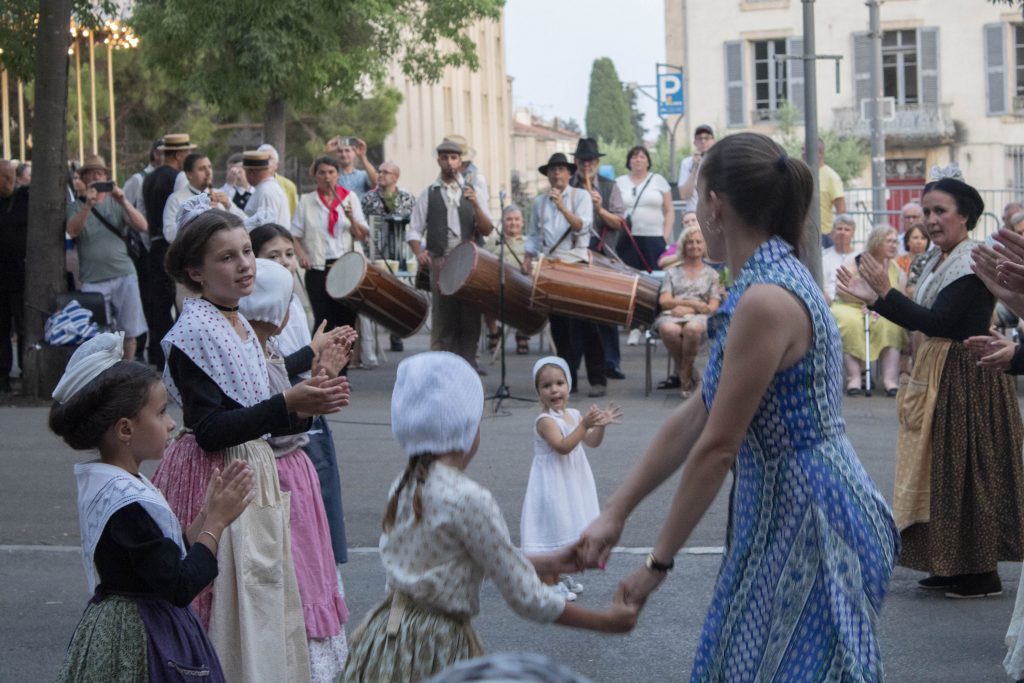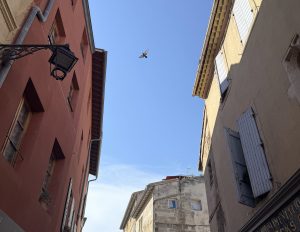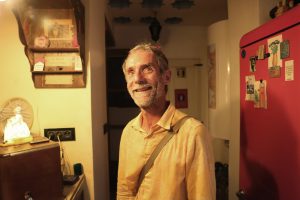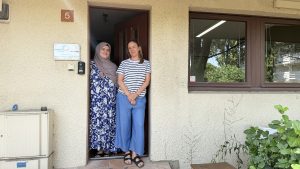
A little girl tries to follow along with dancers during the Fête du Costume in Arles.
Text and photo by Sarah Naccarato
After an eight-hour layover, a flight delay and a two-hour line to get through border control, I missed my train to Arles. Sleep deprived and overwhelmed, I pulled out my phone to find any ticket that was available at the last minute. All around me people were chatting away in French and I didn’t understand a word.
With tears welling in my eyes and a phone with a low battery in my hand, I was already beginning to regret my journey to France.
After I finally arrived in Arles, I sat outside a cafe with the first bit of real food I had consumed in 12 hours. All I could think was: “I am so far away from home. Why did I do this?”
Before I left home, every time I told a friend or family member that I was going abroad to France, they would ask me the dreaded question: “Do you speak French?”
For anyone curious, the answer is no.
In high school I had made the decision to take Japanese for three years, then never explored language education afterward (except for a brief Duolingo French stint to prepare for this trip).
I only can speak the very little bit of French I have learned while here.
Despite this, I have been finding moments that require absolutely no translation.
I don’t need a translation when my host family’s 6-year-old daughter, Marie-Louise, who speaks no English, hands me a stray kitten named Simba. I see her admiration for this small animal, an admiration that I share. We scoop Simba up into our hands and pet him before he scrambles from the heat.
We play in the swimming pool together, and while Marie-Louise may only see me as “the American” who gives her piggyback rides in the pool, I’m okay with that.
I don’t need an interpreter when she shows me her stuffed animal cat and makes it climb up my leg as I sit at the dining room table. We are simply two kids meowing and making silly faces of shock as her stuffed cat falls to the ground.
As I find myself withstanding the sweaty and exhausting walk home from class when the cicadas sing their evening songs, I hesitate to cross the road before seeing a driver flash their high beams at me. We both understand this signal, and I proceed.
I recently attended the Feux de la Saint-Jean and had a similar experience. The dancers, wearing traditional Arlesian dress, spun around, with a little girl tagging along. She was part of the performance but looked adorably confused by the choreography.
Though I couldn’t follow any of the French conversations that circled me, I saw the crowd and passerbys alike giggling while watching the little girl. I understood the joy she made us feel and the nostalgia we all held for her gleeful youth.
I felt a part of something larger – the understanding that this little girl was participating in a significant tradition that has been passed down to her through generations of Arlesians. I needed no translation to comprehend these emotions.
All of this is to say that the fear of the unknown is worth embracing – the fear of not speaking the language, of traveling in a foreign country or adapting to a different culture. I considered not coming to Arles because of my overall lack of French knowledge, but that has made my discoveries even better. Each new thing leaves me a bit more in awe.
I got to climb a medieval castle at Les Baux-de-Provence, see an immersive Monet exhibit in an ancient Roman stone quarry, commute across the beautiful Rhône every day and eat delicious food. Speaking very little French has obviously made these experiences a bit more difficult, but it has never stopped me.
I no longer have a sense of regret in the back of my head. Travelling outside of the U.S. as a study abroad student has been one of the scariest things I have done, but it has been worth it.





